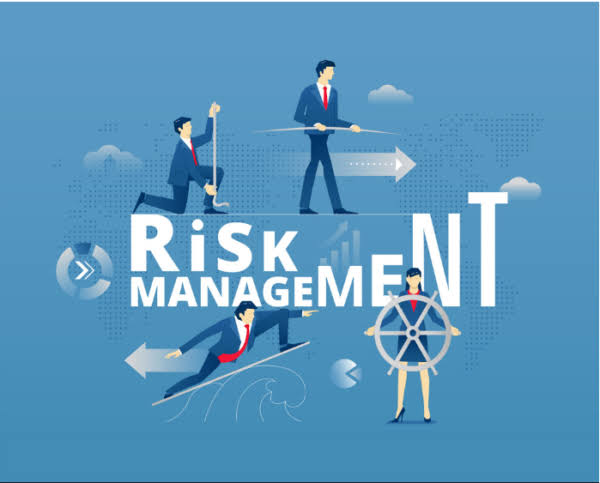
The Intriguing World of Risk Management Experts
The world of risk management is a dynamic and challenging one, demanding a unique blend of analytical prowess, interpersonal communication, and adaptability.
Risk management experts play a vital role in safeguarding organizations from potential threats and ensuring their continued success.
i. Diverse Work Settings:
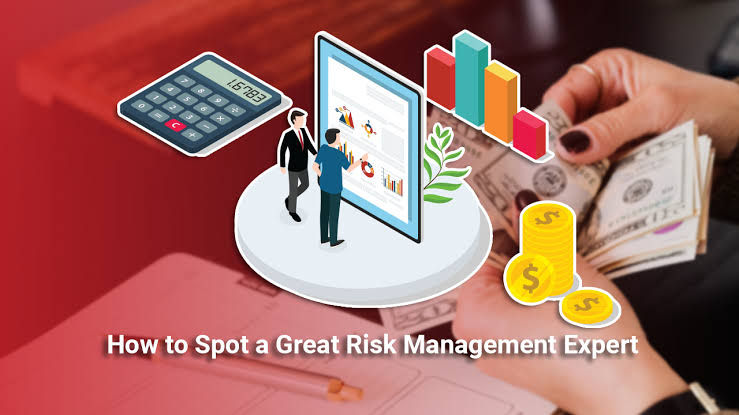
Risk management professionals enjoy the advantage of working in a variety of settings, catering to their individual preferences and career aspirations. From the bustling atmosphere of financial institutions to the fast-paced environment of healthcare organizations, they can find their niche in various sectors. Government agencies, consulting firms, and even non-profit organizations all recognize the importance of risk management, opening up a multitude of career paths for qualified individuals.
ii. A Day in the Life:

The daily tasks of a risk management expert are anything but monotonous.
They typically involve:
A. Risk Identification and Assessment: The initial step involves pinpointing potential risks across various domains, encompassing financial, operational, strategic, and reputational aspects. This meticulous process requires keen observation, analytical thinking, and the ability to anticipate potential challenges.
B. Crafting Mitigation Strategies: Once risks are identified, risk management experts strategize to mitigate their impact. This involves developing and implementing robust policies, procedures, and control mechanisms to safeguard the organization.

C. Monitoring and Analysis: The job doesn’t end at mitigation. Continuous monitoring and analysis of risk indicators are essential to assess the effectiveness of implemented controls and identify any emerging threats that require further attention.
D. Communication is Key: Effectively communicating complex risk assessments and mitigation plans to stakeholders at various levels is crucial. This necessitates exceptional communication skills, enabling risk management experts to tailor their message to resonate with diverse audiences.
E. Staying Ahead of the Curve: The risk landscape is constantly evolving, demanding continuous learning and professional development from risk management experts. Staying updated on emerging risks and industry best practices ensures they are well-equipped to handle future challenges.
iii. Here’s a closer look at what their lifestyle typically involves:
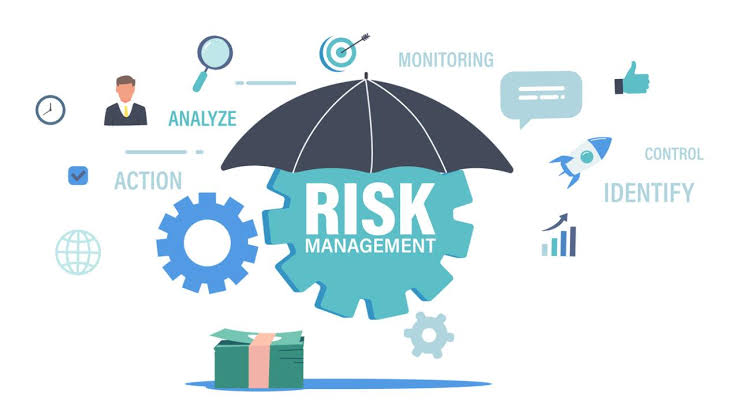
A. Continuous Learning:
Risk management is a constantly evolving field. Professionals must stay abreast of industry trends, emerging threats, and evolving regulatory landscapes. This necessitates a commitment to continuous learning through workshops, certifications, and staying informed about the latest developments.
B. Analytical Rigor:
Risk management experts spend a significant portion of their time analyzing data and assessing potential risks. This involves employing statistical models, financial analyses, and scenario planning to identify, measure, and mitigate risks across various aspects of an organization.
C. Interdisciplinary Collaboration:
Successful risk management requires collaboration with professionals from diverse fields – finance, IT, legal, and operations. Effective communication skills and the ability to translate complex risk assessments into actionable insights are crucial.
D. Strategy Development:
Risk management professionals are responsible for developing risk mitigation strategies, policies, and procedures to address identified risks. This may involve working closely with stakeholders, senior management, and other departments to develop effective risk management frameworks.

E. Strategic Decision-Making:
Risk management experts play a pivotal role in guiding strategic decisions within an organization. They provide insights that help leadership make informed choices, balancing risk and reward. This strategic involvement often means being part of high-level discussions and decision-making processes.
F. Adaptability to Change:
The business environment is dynamic, and risk management experts must be adaptable. They need to respond swiftly to changes in the industry, economic conditions, or emerging risks, ensuring that risk management strategies remain relevant and effective.
G. Global Perspective:
In an interconnected world, risk management often extends beyond local borders. Professionals in this field may need to consider geopolitical events, global economic trends, and international regulations that could impact the organizations they serve.
H. Technology Integration:
With the rise of digital transformation, risk management experts need to be tech-savvy. Understanding and leveraging technology, including data analytics, artificial intelligence, and cybersecurity tools, is crucial for effective risk mitigation.

I. Monitoring and Reporting:
Risk management professionals continuously monitor and evaluate risks, track key risk indicators, and provide regular reports to senior management or board of directors. They are responsible for keeping stakeholders informed about the organization’s risk exposure and mitigation efforts.
J. Compliance:
Ensuring regulatory compliance and adherence to industry standards is a critical aspect of a risk management expert’s role. They must stay up to date on relevant laws, regulations, and best practices to ensure the organization’s risk management practices are in line with legal requirements.
K. Work-Life Balance Challenges:
Given the nature of risk management, which often involves responding to crises or unexpected events, achieving a perfect work-life balance can be challenging. Professionals may need to be on call during critical periods or work irregular hours to address urgent risk-related matters.
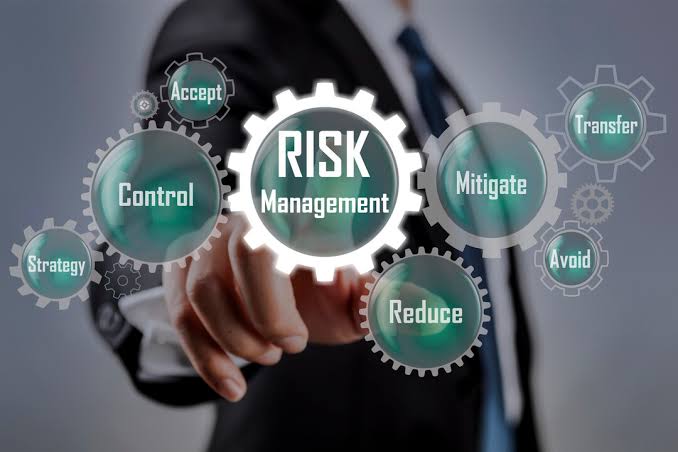
L. Ethical Considerations:
Upholding ethical standards is paramount in risk management. Professionals must navigate the complexities of ethical decision-making, ensuring that risk mitigation strategies align with the organization’s values and legal requirements.
M. Career Advancement Opportunities:
The field of risk management offers diverse career paths. Professionals may transition to executive roles, specialize in specific risk domains, or move into consulting. Continuous career development is a common aspect of a risk management expert’s lifestyle.
iv. Essential Skills and Qualities:

To thrive in this dynamic profession, a specific skillset is essential. Here are some of the key qualities that distinguish successful risk management experts:
A. Analytical Acuity: A keen eye for detail, coupled with the ability to analyze complex data and identify potential risks, is paramount.
B. Communication Expertise: The ability to convey complex risk information in a clear, concise, and engaging manner to both technical and non-technical audiences is vital.
C. Teamwork and Collaboration: Risk management often necessitates collaboration with various stakeholders across different departments. Effective teamwork and interpersonal skills are essential for navigating diverse perspectives and achieving common goals.
D. Adaptability and Resilience: The ever-changing nature of risks demands flexibility and the ability to think on one’s feet. Risk management experts must be adaptable to navigate challenges and remain resilient in demanding situations.
v. A Rewarding Career Path:
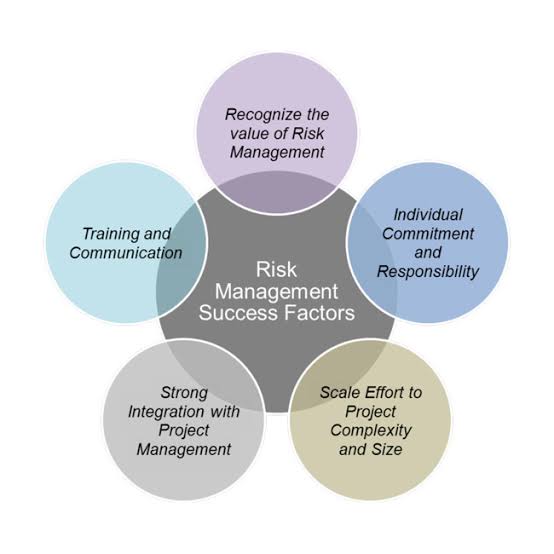
The lifestyle of a risk management expert offers a stimulating and intellectually challenging career path for individuals who possess the necessary skills and are passionate about safeguarding organizations from potential harm.
vi. Conclusion

Overall, the lifestyle of a risk management expert involves a combination of analytical work, strategic decision-making, collaboration, monitoring, and compliance activities. It requires a balance of technical skills, constant vigilance, and clear communication with the potential for high rewards both in terms of career satisfaction and financial remuneration.
vii. Further references
LinkedInhttps://www.linkedin.com › adviceHow to Stay Motivated as a Risk Management Professional
300Hourshttps://300hours.com › risk-manage…Risk Management Career Path: Roles, Salary & Progression
0901.nccdn.nethttps://0901.nccdn.net › Risk…PDFRisk Management.pdf
TechTargethttps://www.techtarget.com › featureTop 12 risk management skills and why you need them
IMS Proschoolhttps://proschoolonline.com › blogA Day in the Life of a Risk Manager / Risk Analyst
Careers in Riskhttps://www.careersinrisk.com › a-d…A Day in the Life of a Risk Manager | Risk …
St. John’s Universityhttps://www.stjohns.edu › news-mediaIs a Risk Management Career Right for You?
